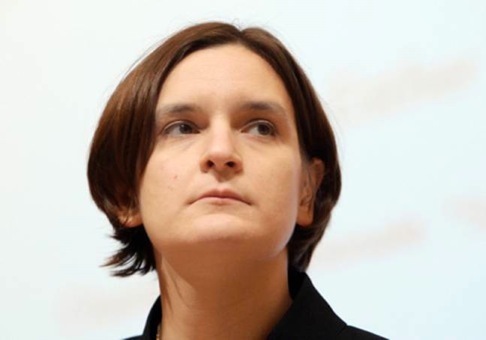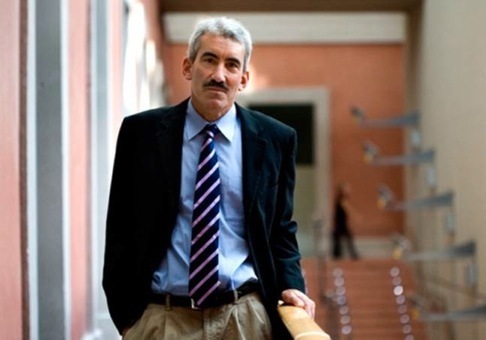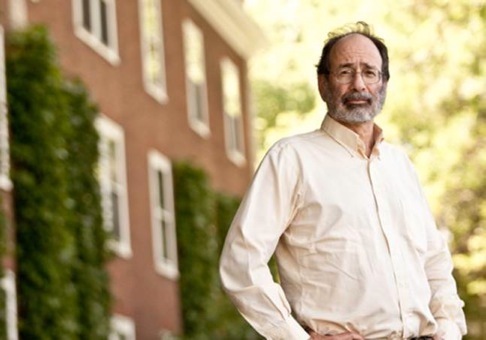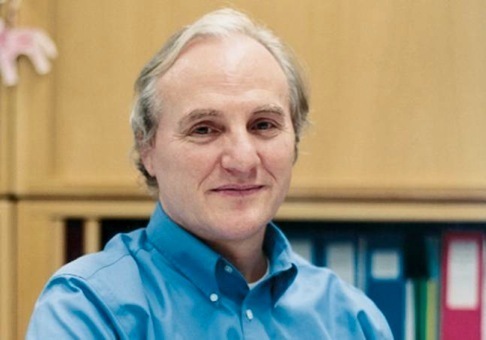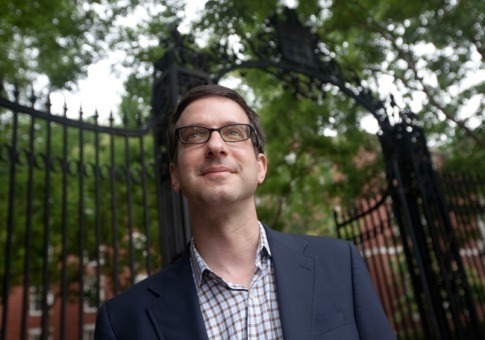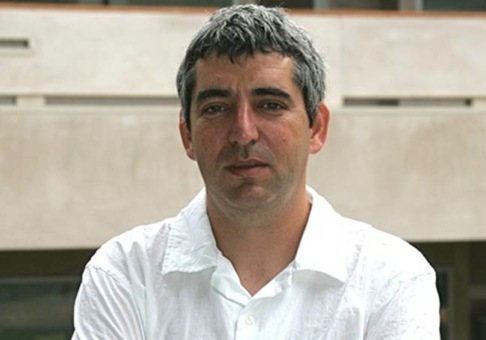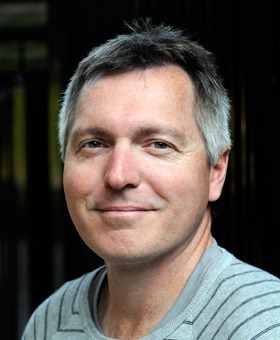Dan Ariely's Blog, page 61
November 9, 2010
The power of Free tattoos
In many past experiments we have shown that people are often overly excited about Free (see Predictably Irrational). An interesting opportunity to further look at this behavior presented itself when a few weeks ago nightclub in New York City promoted an event with "free tattoos," and we just had to check it out, and see if the offer for free tattoos would tempt people to get one…
A large open room in an old industrial building with three wooden picnic tables lined up end to end in the center of the room. The tattoo station was small portable table, two folding chairs, and a cheap floor lamp. Our research assistant, with her clipboard, was by far the cleanest and most official looking person around. And when she offered to help the tattoo artist by taking the names of the people in line, he was delighted. In the 5 hours she was there (from 9pm to 2am) a total of 76 people signed up for free tattoos
Who are these people?
The line for free tattooed was composed of the same number of males and females. The age range was 18 (underage for the event) to 47, with an average of 26. As they were deciding to stand in line for the free tattoo we asked the participants how drunk they were at that point, and the average level of reported drunkenness was surprisingly low at 2.64 on a scale from 1-11 (however, it was later discovered that a better question to ask may have been "How intoxicated, drunk or high do you feel right now?").
What were they getting?
Overall, the tattoos people wanted were very creative. Some notables were the phrase "Holy Snacks" on the inside bottom lip. One 27-year-old male wanted a Nintendo controller tattooed onto his left ribs. There was a request for a penis tattoo, and a few people wanted some version of infinity in English or in Swahili (Umilele). Another notable groups were the 4 individuals that did not know what they wanted, but knew that they wanted some free tattoo, and the 5 individuals that did not know where they wanted it.
Was it the Free?
When we asked the people in line for the free tattoos if they would get the tattoo if it were not free, 68% said they would not. They were only getting it because it was free. We also asked the participants if they knew that there were free tattoos being offered at the party. The 90% that knew they would be giving away free tattoos were asked two follow-up questions. First, when asked when they made their decision to get a tattoo that night before or after arriving at the party, 85% said they made their decision before arrival and 15% made the decision after arriving. When further asked, on a scale of 0-100, how likely did they think they were to get a tattoo that night, people were on average 65% sure they would be getting a tattoo.
As the research assistant was collecting the data, another tattoo artist (not the one that work working that evening, but a competitor) stopped by to tell give us her opinion about the free tattoo practice. This petite brunette, with a medallion tattoo on her lower sternum, felt it was her responsibility to tell us in gory detail about all the unhygienic and potentially health hazardous practices she had witnessed throughout the evening. She talked about how a contaminated paper towel had been passed around and how an obvious necessity missing from the set-up was any sort of disinfectant. She said all these practices could cause these people to contract a blood disease, like Hepatitis, HIV, etc. Whether her concerns were valid or not, it became clear to us that the real cost of tattoos are not their price, but the odds for infections and long term illness.
You decide:
The results indicate that the power of "free" is surprisingly influential. When we face a decision about a tattoo, one would hope that the long term permanency of the decision, coupled with the risks of getting different types of infections would cause people to pay little attention to price, and certainly not to be swayed one way or another by the power of free. But sadly, the reality (at list in the nightclub scene in New York) suggests that the power of free can get us to make many foolish decisions. So next time, when you are facing a decision about a "free" offer, my suggestion would be to imagine what you would do if the price was not free and instead it was very cheap (maybe $1) — and ask yourself if this would change your behavior. And if you would make a different decision if free was not involved, maybe this is a good sigh that the decision was not that good to start with?








November 7, 2010
Gray Areas in Accounting
Every profession is bound by written and unwritten rules and policies; some of them are set by organizations while others are an integral part of the occupation you choose. For example, doctors have to swear by the Hippocratic Oath, lawyers cannot divulge any privileged attorney-client conversations, and priests cannot reveal what was said to them in the confessional. The same kind of ethical code exists in the profession of accountancy because it is a means of public service. As Robert H. Montgomery put it, "Accountants and the accountancy profession exist as a means of public service; the distinction which separates a profession from a mere means of livelihood is that the profession is accountable to standards of the public interest, and beyond the compensation paid by clients."
However, accountants are plagued by deep ethical dilemmas – there may be times when their employers ask them to twist and tweak the financial position of the company because they've had a bad year. The usual spiel given is that they're definitely going to rake in the profits in the months that follow and that the deficits that have been covered up this year will more than be taken care of in the years to come. So the accountant is left wondering if he/she should be loyal to their professional ethics or show loyalty to the company that has hired them.
To overcome this type of problems, ethics is taught as a subject when you choose to study accountancy, because you are responsible not just to your employer, but also to the general public who believe in your reports and statements and take important decisions based on your word. An important question here if course is how effective are ethics classes, and even if they are successful how long would their influence last (a week? a month? a year? 2 years?). It is hard to believe that taking one or two classes on ethnics while studying accountancy is going to have a long term effect, and most likely higher standards and more strict definitions of continuing are needed (and maybe also higher frequency of education).
In other cases accountants are torn between reporting misbehaviors that are going on and between minding their own business – should they open up a can of worms and be at the center of a controversy or just take heart in the fact that they were true to the ethics of their profession? This type of cases present the "action inaction bias" where in general people view their own actions as much more important than inactions – which means that accountants are more likely to care about their own actions than about reporting the actions of others. Yet, accountants must remember that they are accountable for not just their actions, but also their non-actions, if either tend to affect the public adversely.
Overall the study of accountancy, and understanding its challenges is not only important in its own right, but it also provide an important case from which to view problems of conflicts of interest
By-line:
This guest post is contributed by Omar Adams, he writes on the topic of online accounting degrees . He welcomes your comments at his email id: [email protected].








November 3, 2010
New Economists worth knowing
Forbes magazine asked me a few weeks ago to list the "Seven Most Powerful New Economists." I am not sure what the title exactly means, but here is my list (and here is the link to the list on the Forbes website):
…
Many people have contributed over the years to Behavioral Economics–too many to mention here. The individuals on this list have not only changed the face of economics as we know it, but they are likely to contribute a great deal more in the years to come. Each of these individuals has tremendous creativity and insight that has enabled them to capture and explain our odd, complex, and sometimes irrational human nature. Armed with this new understanding of human behavior, and taking our human weaknesses into account, behavioral economics could help us take steps toward designing a better world.
Esther Duflo, Abdul Latif Jameel Professor of Poverty Alleviation and Development Economics, MIT
Esther is one of the founders and the director of the Poverty Action Lab, and an inspiring researcher in a related field called development economics. Her efforts are directed at improving our understanding of the financial, and social incentives of the poor, and the limitations imposed on them by their environment. She carries out clever experiments, mostly in third-world countries, that try to tease apart the causes for much of human misery. In the process, she is proposing solutions that are effective and efficient.
George Loewenstein, The Herbert A. Simon Professor of Economics and Psychology, Carnegie Mellon University
George has a knack for being at the start of nearly every important trend in Behavioral Economics. Beside his role as one of the pioneers of the field, George was one of the founders of the allied field of neuroeconomics, among the first to test behavioral economic theories using field experiments, one of the first to explore the role of emotions in economic behavior, and is a leader in the increasingly popular application of behavioral economics to public policy. He is perhaps best known for his research on our inability to correctly predict what we would want in the future, and when we are under the influence of different emotional states.
Al Roth, The Gund Professor of Economics and Business Administration, Harvard University
Al is interested in how people behave in complex economic environments, and how those environments can be better designed to help people achieve better outcomes. One of the first such marketplaces that Al helped design is a system that "matches" new medical residences to their first hospital jobs. He also used the same general approach to set up markets that place students in NYC and in Boston public high schools, and most recently he was instrumental in designing the New England Program for Kidney Exchange.
Ernst Fehr, Professor of Economics, and Director of the Institute for Empirical Research in Economics, University of Zurich
Ernst has been a pioneer in exploring "social preferences," which is the basic idea that we care about others. In addition to becoming an important idea in economics, social preferences are also an important building block in our understanding of the limitations of the standard rational model of selfish behavior. With many innovative experimental approaches, Ernst has firmly established the importance of social preferences in labor markets, credit markets, as well as in the internal organization of companies. He is also a major contributor to neuroscience and to the biological foundations of economic behavior.
David Laibson, Professor, Harvard University
David has made it his mission to understand why our best intentions are often inconsistent with our actions. He explores important puzzles such as: Why do we pay $1,000 for one-year gym membership and then never go? Why do we plan to lose weight, but fail to stick to our diet? Why do we set deadlines and break them? Why are exercise, good nutrition and saving things that we always think we will do tomorrow, but not today? In the process, he's finding ways to enable people to commit themselves to courses of action that best reflect their long-run interests.
Uri Gneezy, Arthur Professor of Management and Strategy, University of California at San Diego
Uri is a non-conventional thinker who has repeatedly demonstrated the many ways rational economic theory crashes when it encounters data. His work focuses on the role of incentives, in particular the unexpected ways in which financial incentives, both large and small, can have detrimental effects. Among his findings: Giving people money for a certain behavior (relative to paying them nothing) can actually reduce the likelihood they will engage in this task, and that large incentives can actually hurt performance.
John List, Professor of Economics, University of Chicago
John carries out his field almost everywhere: in charities, schools, online, in businesses, and in markets as diverse as auto-repair shops and flea markets. In one recent field experiment in a high-tech Chinese manufacturing plant, John found that simply framing worker bonuses as losses rather than gains increased worker productivity by over 1%. While 1% might not seem too big, with compounding, this magnitude of difference can cause two countries that start out equal diverge over the years such that one looks like the U.S. and the other like Ethiopia.








I Pick The Seven Most Powerful New Economists
Many people have contributed over the years to Behavioral Economics–too many to mention here. The individuals on this list have not only changed the face of economics as we know it, but they are likely to contribute a great deal more in the years to come. Each of these individuals has tremendous creativity and insight that has enabled them to capture and explain our odd, complex, and sometimes irrational human nature. Armed with this new understanding of human behavior, and taking our human weaknesses into account, behavioral economics could help us take steps toward designing a better world.
Esther Duflo, Abdul Latif Jameel Professor of Poverty Alleviation and Development Economics, MIT
Esther is one of the founders and the director of the Poverty Action Lab, and an inspiring researcher in a related field called development economics. Her efforts are directed at improving our understanding of the financial, and social incentives of the poor, and the limitations imposed on them by their environment. She carries out clever experiments, mostly in third-world countries, that try to tease apart the causes for much of human misery. In the process, she is proposing solutions that are effective and efficient.
George Loewenstein, The Herbert A. Simon Professor of Economics and Psychology, Carnegie Mellon University
George has a knack for being at the start of nearly every important trend in Behavioral Economics. Beside his role as one of the pioneers of the field, George was one of the founders of the allied field of neuroeconomics, among the first to test behavioral economic theories using field experiments, one of the first to explore the role of emotions in economic behavior, and is a leader in the increasingly popular application of behavioral economics to public policy. He is perhaps best known for his research on our inability to correctly predict what we would want in the future, and when we are under the influence of different emotional states.
Al Roth, The Gund Professor of Economics and Business Administration, Harvard University
Al is interested in how people behave in complex economic environments, and how those environments can be better designed to help people achieve better outcomes. One of the first such marketplaces that Al helped design is a system that "matches" new medical residences to their first hospital jobs. He also used the same general approach to set up markets that place students in NYC and in Boston public high schools, and most recently he was instrumental in designing the New England Program for Kidney Exchange.
Ernst Fehr, Professor of Economics, and Director of the Institute for Empirical Research in Economics, University of Zurich
Ernst has been a pioneer in exploring "social preferences," which is the basic idea that we care about others. In addition to becoming an important idea in economics, social preferences are also an important building block in our understanding of the limitations of the standard rational model of selfish behavior. With many innovative experimental approaches, Ernst has firmly established the importance of social preferences in labor markets, credit markets, as well as in the internal organization of companies. He is also a major contributor to neuroscience and to the biological foundations of economic behavior.
David Laibson, Professor, Harvard University
David has made it his mission to understand why our best intentions are often inconsistent with our actions. He explores important puzzles such as: Why do we pay $1,000 for one-year gym membership and then never go? Why do we plan to lose weight, but fail to stick to our diet? Why do we set deadlines and break them? Why are exercise, good nutrition and saving things that we always think we will do tomorrow, but not today? In the process, he's finding ways to enable people to commit themselves to courses of action that best reflect their long-run interests.
Uri Gneezy, Arthur Professor of Management and Strategy, University of California at San Diego
Uri is a non-conventional thinker who has repeatedly demonstrated the many ways rational economic theory crashes when it encounters data. His work focuses on the role of incentives, in particular the unexpected ways in which financial incentives, both large and small, can have detrimental effects. Among his findings: Giving people money for a certain behavior (relative to paying them nothing) can actually reduce the likelihood they will engage in this task, and that large incentives can actually hurt performance.
John List, Professor of Economics, University of Chicago
John carries out his field almost everywhere: in charities, schools, online, in businesses, and in markets as diverse as auto-repair shops and flea markets. In one recent field experiment in a high-tech Chinese manufacturing plant, John found that simply framing worker bonuses as losses rather than gains increased worker productivity by over 1%. While 1% might not seem too big, with compounding, this magnitude of difference can cause two countries that start out equal diverge over the years such that one looks like the U.S. and the other like Ethiopia.








November 1, 2010
Experiments? Not!
A few days ago we wrote the nice people at Whole Foods about some ideas for doing experiments together. These were going to be experiments on taste perception, willingness to pay, and on how we get people to eat healthier and enjoy more fruits and vegetables.
Here is the official response we got back:
Thanks so much for considering Whole Foods Market for this opportunity…. While the concept is quite interesting and the subject matter is aligned with our stores, we will unfortunately be passing on this opportunity at this time.
Thanks so much for considering us and please don't hesitate in reaching out to us in the future.
Best regards,
Michael
What annoys me is the combination of "aligned with our stores" and "no." And of course it is not just Whole Foods that is in this boat. Companies in general are willing to spend lots of money on consultants, they are willing to spend lots of money on gambling that their intuitions are correct, and sometimes they even pend money on focus groups. But, when it comes to testing things empirically, the typical answer is "interesting, but not for us."
I suspect that the reason for the reluctance to engage in experiments is that no one (for example Michael from Whole Foods) wants to take any risks. Everyone just wants to do their job. Because of that companies continue to behave in the same way without taking any new interesting directions…. very sad.
Sorry about this post, but I had to vent somehow.








October 29, 2010
More on resilience
A couple months ago, I wrote about a study showing that those who had experienced a little (but not too much) adversity were better at handling physical pain than their pain-free counterparts.
Now, a new study finds the same trend – but with mental health and wellbeing. It seems that both physical and mental resilience can be achieved through a healthy amount of adversity. When we face hard times, we adapt and build a callous that helps us take on future challenges.
Resilience is often considered a process that occurs in spite of adversity, but we might want to instead think of it as a phenomenon that appears because of adversity. Indeed, we can become even more physically and mentally capable as a result of our misfortunes.








October 19, 2010
When Firefighters Don't Fight
Recently, a flaming trashcan ignited a house in Tennessee. Local authorities were notified and a crew of firefighters rushed to the scene to put out the fire just in time.
Wait a minute. That's not at all what happened. In Obion County, firefighters are not on-call to the community at large. Instead, the right to a fireman is only guaranteed to those who pay an annual $75 fire protection fee before their property lights up. When this house (belonging to homeowners who had not paid the fee) caught fire, firefighters refused to come to the rescue. They ignored the family's begging, only arriving at the scene when the fire jumped to a neighbor's house (who had, in fact, paid for protection). Still, not a drop of water was wasted on the first house. Firefighters merely stood and watched as the house dissolved into ash.
This problem is related to the question of bailing out people with bad mortgages. Should we help those who took o mortgages that they could not afford? Would it encourage them in the future to keep on being reckless?
Or we can ask a more general question — should we actually let people decide whether they'd like to pay the advance protection fee, or is there something ultimately flawed about letting people decide for themselves? Very few of us think that we will be the ones in need of fire protection, and because we don't foresee the consequences of not paying, we might not be sufficiently prepared for a potential disaster. And maybe we shouldn't have to make that difficult decision ourselves.








October 14, 2010
Looking for a massage …
Recent research (1) shows how physical contact can promote trust, even among complete strangers. Paul Zak, a neuroeconomist at Claremont Graduate University (together with Vera Morhenn, Jang Woo Park, and Elisabeth Piper), studies the links between levels of oxytocin (the "bonding" hormone) in relation to economic decision-making. In their study, they looked at participants' responses in the Trust Game when they were (or were not) given massages. First, let's take a look at how the classic Trust Game works between two players (who never meet):
Player 1 gets some money ($10 in this case) and the option to send none, some, or all of it to Player 2, knowing that the money that is sent will be tripled on its way into Player 2's hands. So, if Player 1 decides to send $4 to Player 2 (and keep $6), Player 2 will receive $12 ($4 x 3).
Player 2 then has the option of sending none, some, or all of the money back.
Paul and his collaborators found that a mere 15-minute massage increased the amount of oxytocin in the bloodstream, leading participants to be more trusting of their anonymous partners in the game. Those who were massaged (women, especially) were primed to be more empathetic and trusting, ultimately sacrificing more to achieve mutual benefit. When massaged, Player 1 sent more money and when massaged Player 2 gave more money back.
But it's probably not just oxytocin guiding these trusting gamers. Another study from Cedars-Sinai Medical Center (2) showed that those who received a 45-minute Swedish massage (as compared to a light-touch control group) had decreased levels of the hormones cortisol (released during stress) and vasopressin (linked to aggression and cortisol release). Basically, the Swedish massage relaxed participants, decreasing their physiological stress response.
In addition, An experiment conducted by Jonathan Levav and Jennifer Argo (3) showed that participants who were physically touched by a female experimenter (on the shoulder or with a handshake) made riskier financial decisions like gambling or investing money. Why? The contact made them feel secure and safe from harm. Consequently, like their massaged counterparts, they were more willing to take risks for potentially greater gains.
Being physically touched, whether with a kneading massage or a comforting pat on the shoulder, seems to encourages cooperative behavior. While these decisions may benefit others more than ourselves (at least in terms of immediate monetary gain), they are not necessarily ill-advised. In fact, the decision-makers who gave money to an anonymous partner ultimately felt better about their choices.
With this in mind, we purchased a massage chair in the Center for Advanced Hindsight. Now, we are looking for volunteers to help us test what other benefits we can get from massage.

1: Vera B. Morhenn, Jang Woo Park, Elisabeth Piper & Paul J. Zak. "Monetary sacrifice among strangers is mediated by endogenous oxytocin release after physical contact", Evolution and Human Behavior, 29(375–383), 2008.
2: Mark H. Rapaport, Pamela Schettler & Catherine Bresee. "A Preliminary Study of the Effects of a Single Session of Swedish Massage on Hypothalamic–Pituitary–Adrenal and Immune Function in Normal Individuals". The Journal Of Alternative And Complementary Medicine, 16 (1-10), 2010.
3: Psychological Science (2010), Jonathan Levav and Jennifer J. Argo, Physical Contact and Financial Risk Taking








October 10, 2010
Annoying dentist…
On October 5th I appeared on NPR, discussing some of the problems with dentistry.
This was not the first time that I have pointed to problems of conflicts of interests. In the past I have been vocal about conflicts of interests in Medicine and in Banking, but somehow this time I stuck a nerve and as a consequence I got lots of angry emails (see also the comments on NPR).
The basic email I got had the following form:
"Dan, you are an idiot. I am a dedicated dentist who only does what is in the best interest of my clients. But, it is true that there are a few bad apples in dentistry, as they are everywhere"
One of the responses came was from Ronald Tankersley, D.D.S. the President of the American Dental Association. Among other things Ronald Tankersley writes:
Ariely's assertion that patients stay with their dentists because pain, discomfort and having to "keep your mouth open" causes cognitive dissonance is pure nonsense— he sounds like someone who hasn't visited a dentist for decades. Modern pain and anxiety control techniques have all but eliminated the discomfort that older patients may have encountered as children. In fact, younger patients today don't think of dental care as being uncomfortable at all, partly because they rarely get disease and partly because the treatment they do get is rarely uncomfortable.
Particular details of the comments aside, I would like to take this opportunity and clarify my position on the pay-for-service model that we commonly use in dentistry and its effects on conflicts of interests (dentists that get paid for X want to do X), and on the quality of care:
1) I don't think that dentists are particularly evil, selfish, of greedy just that (much like the rest of us) when they face conflicts of interest they are likely to see the world in a distorted way. They are likely to look, and find, problems that the treatments for are ore lucrative. The same of course applies to bankers, MDs, financial advisors, expert witnesses, etc.
2) The evidence for conflicts of interests is rather staggering, and I suspect that the majority of dentists would agree with me that this is a problem that is hurting their clients and in the long-terms also their profession.
3) One of the hallmarks of conflicts of interests is that people don't see themselves as being influenced by such forces ("I am always doing the right thing, other people succumb to conflicts of interests…")
4) I am easily influenced by data, and I would read carefully any study or data that would add to my understanding of this problem – so if you have such data, please send it my way.
5) Rather than dismissing the problem completely, perhaps the American Dental Association should take this as an opportunity to study the standards of care and conflicts of interests in dentistry. On my part, I am willing to help in any way I can. I can help design studies, analyze data, propose ways to eliminate conflicts of interest and get patients to seek second opinion, etc.
It is easy to pretend that world of dentistry is working just fine, and that the error is entirely mine, but I suspect that this is not the right approach for patients, for dentists, or for the American Dental Association.
Irrationally yours
Dan Ariely








October 9, 2010
Taxes and fun?
April: That time of year when the weather is perfect and the mosquitoes have yet to emerge full swarm. When you can start to think about lying by the pool without fully having to come to terms with wearing a bathing suit in public….
…And yet it's that time of year when the majority of the country will be gripped by stress as that fateful day moves ever closer – April 15th, tax day.
No one likes cutting a check to Uncle Sam, and the fact that the process of filling out the tax forms resembles a nightmarish (Choose-Your-Own-Adventure) story does nothing to improve matters. But as is often the case, the anticipation is arguably the worst part, and typically one dedicated night (in addition to a more substantial amount of time taken to organize) is sufficient to finish the paperwork. It's just a matter of convincing yourself to sit down and do it.
But what if it wasn't such a dreadful experience? Imagine how the tax experience would change if you had a way to alleviate the stress and maybe even enjoy some of the aspects of the task at hand…
Let's say that your 1040 came with a little extra stuff: maybe a container with an alcohol content, or perchance something of the chocolate persuasion. What if your tax forms arrived in a gift box with some financial documents on the side? What if the instructions for filling out the form told you to type in your personal information and take a bite of chocolate, type in your W-2 information and drink some of the alcohol, add your deductions and try some of the nuts etc? What if we could live in a world where you actually looked forward filling out these forms?
What do you think? Would you be interested in doing something like this on this tax season?
If you don't mind, click this link and let me know what you think about this idea.
Irrationally yours
Dan








Dan Ariely's Blog
- Dan Ariely's profile
- 3912 followers


